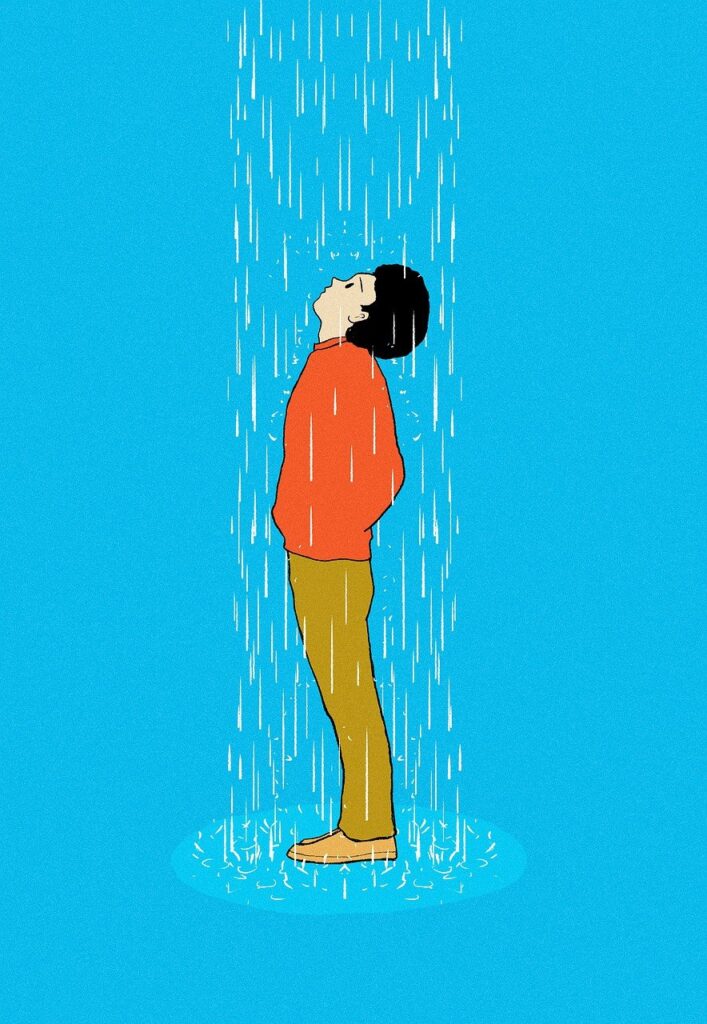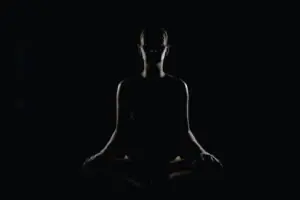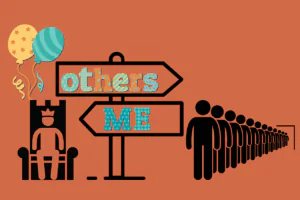A silver lining of the Covid 19 pandemic was that it brought mental health issues to the foreground. The isolation from the shutdown had many people wondering if loneliness can cause depression. The Surgeon General even noticed, and recently released an advisory: Our Epidemic of Loneliness and Isolation.
Beyond the pandemic, society has been careening toward a disintegration of social connection for many years. Clearly, that’s not good. According to the advisory, loneliness and social isolation increase the risk of premature death by 26% and 29% respectively. In other words, lack of social connection can increase your risk of premature death as much as smoking up to 15 cigarettes a day! Despite current advancements that now allow you to live without engaging with others (e.g., food delivery, automation, remote entertainment), your biological need to connect remains.
Recent surveys have found that approximately half of U.S. adults report experiencing loneliness, with some of the highest rates among young adults. Despite this high prevalence, less than 20% of individuals who often or always feel lonely or isolated recognize it as a major problem.
The fundamental need for social connection or belonging is so strong that some people may seek it out in ways that may be unhealthy. This can include participation in gangs and joining extremist or other harmful groups.
Loneliness vs. Depression
But back to the question – can loneliness cause depression? After all, loneliness and depression can involve similar feelings such as restlessness and irritability, mental fogginess, low energy, self-doubt, changes in appetite or sleep patterns, and aches and pains.
However, loneliness is a transient emotional state that specifically relates to your need for connection and belonging. Once you meet those needs, you’ll probably feel less lonely.
On the other hand, depression doesn’t just relate to the need for connection. Its spectrum of behavioral, cognitive, and emotional symptoms is more complex. Without treatment from a trained mental health professional, depression symptoms can linger for years and become more serious. Depression can affect your interest in social interaction, making it difficult to reach out. You may feel worthless, guilty, or believe other people don’t want to spend time with you. Even if you do reach out, social interaction only temporarily distracts you, it doesn’t resolve the depression.
There is a clear connection between loneliness and depression, though. A 2021 study published in Lancet Psychiatry found associations between loneliness and depressive symptoms in a group of 4000 adults 50 years old and older that were followed for 13 years.
Research also suggests that loneliness and depression may potentiate each other. The lonelier you are, the more depressed you feel, in a vicious cycle. So, again, just “getting out there” and being with other people isn’t enough. If you still feel lonely when you’re around others, it could be a sign of depression or social anxiety. In this case it may be a good idea to seek psychotherapy to help with feelings of loneliness.
Effects of Loneliness
Loneliness can increase the amount of cortisol (a stress hormone) in your body. This can affect your immune system and raise your risk for various health concerns including diabetes, sleep issues, cancer, heart problems, and obesity.
loneliness can also affect mental health and can factor into the development of serious conditions such as depression. To address loneliness effectively you might need to uncover the underlying causes. For example, if you already have plenty of people in your life and still feel lonely, you should consider the quality of those interactions. Also, spending your time on unfulfilling activities can contribute to unhappiness and boredom. This may affect how you feel about spending time with others. Devote your free time to things you really enjoy as a form of self-respect.
The researchers who explored the connection between loneliness and depression suggest that reframing or suppressing unwanted thoughts can help reduce their impact and prevent the negative thought cycles that often trigger feelings of depression. Mindful acceptance can also help you get more comfortable with distressing thoughts. Mindfulness helps you learn to accept these thoughts and then let them go before they affect your perception of yourself.
Related Reading: 18 Warning Signs of Childhood Depression Every Parent Should Know
Symptoms of Depression
Depression is a mood disorder that causes a persistent feeling of sadness and loss of interest in things and activities you once enjoyed. It can also cause difficulty with thinking, memory, eating and sleeping. It’s normal to feel sad about or grieve over difficult life situations such as losing your job or getting a divorce. Depression is different in that it persists almost every day for at least two weeks and involves more symptoms than just sadness alone.
According to the American Psychiatric Association’s Diagnostic Statistical Manual of Mental Disorder, Fifth Edition (DSM-5) there are four classifications of depressive disorders:
- Clinical depression (major depressive disorder): You felt sad, low, or worthless most days for at least two weeks while also having other symptoms such as sleep problems, loss of interest in activities, or change in appetite. This is the most severe form of depression and one of the most common forms.
- Persistent depressive disorder (PDD): Mild or moderate depression that lasts for at least two years. Symptoms are less severe than major depressive disorder.
- Disruptive mood dysregulation disorder (DMDD): This causes chronic intense irritability and frequent anger outbursts in children. Symptoms usually begin by the age of 10.
- Premenstrual dysphoric disorder (PMDD): This involves premenstrual syndrome symptoms along with mood symptoms such as extreme irritability, anxiety, or depression. Symptoms improve within a few days after your period starts but can be severe enough to interfere with your life.
Researchers say that nearly 7% of adults in the United States have an episode of depression every year. However, they also believe that these estimates are lower than reality since many people don’t seek medical help for symptoms of depression and don’t receive a diagnosis.
Causes of Depression
A variety of factors can contribute to depression:
- Brain Chemistry: If you have a variance in the level of neurotransmitters, including serotonin and dopamine absorbed by neurons in the brain.
- Genetics: If you have a first degree relative (biological parent or sibling) with depression you’re about 3 times as likely to develop the condition.
- Stressful life events: The death of a loved one, trauma, divorce, isolation and lack of support, or other difficult experiences can trigger depression.
- Medical conditions: Chronic pain and chronic conditions such as diabetes can lead to depression.
- Medication: Some medications can cause depression as a side effect.
Brain chemistry and Depression
Certain areas of the brain help regulate mood. Recent research is showing that even more importantly than levels of specific brain chemicals, nerve cell connections, nerve cell growth, and the functioning of nerve circuits have a major impact on depression. The use of technology such as PET scans and fMRI scans has led to a better understanding of which brain regions regulate mood and how other functions, such as memory, may be affected by depression.
One area of the brain that plays a significant role in depression is the hippocampus. Research shows that the hippocampus is smaller in some depressed people. Stress, which plays a role in depression, could be a key reason for this since experts believe that stress can suppress the production of new neurons (nerve cells) in the hippocampus.
Related Reading: Can Depression and Anxiety be Cured?
Antidepressants immediately boost the concentration of neurotransmitters, chemical messengers in the brain. However, people who take antidepressants typically don’t feel better for a few weeks or even longer. Experts have wondered why people don’t feel better as soon as low levels of neurotransmitters are increased. The answer may be that mood only improves as nerves grow and form new connections, which can take weeks.
The real value of these medications actually may be in generating new neurons, strengthening nerve cell connections, and improving the exchange of information between nerve circuits. Depression medications could be developed that specifically promote new growth of nerves, connections, and circuits.
Treatment for Depression
About 80 to 90 percent of people with depression who seek treatment eventually respond well to it. Treatment typically involves a combination of psychotherapy and medication. Sometimes Complementary Medicine is added to this combination and other times as an alternative treatment.
Psychotherapy is often a foundation for treatment for depression. There are many types of psychotherapy for depression, but Cognitive Behavioral Therapy (CBT) is the most common. Additional approaches include Dialectical Behavior Therapy, Mindfulness, Yoga Therapy, Rapid Resolution Therapy, Psychodynamic Therapy, Somatic Experiencing, and more.
Antidepressant medication can help change the brain chemistry that contributes to depression, as mentioned above. There are numerous kinds of antidepressants, and it may take time to figure out the one that’s best for you.
Complementary Medicine involves treatments you may receive along with traditional Western Medicine. People with mild depression or ongoing symptoms can improve their well-being with therapies such as acupuncture, massage, hypnosis, yoga, and biofeedback.
Without treatment, depression can become worse, increase your chance of other health conditions such as dementia, lead to worsening of existing conditions such as diabetes or chronic pain, or even lead to self-harm or death. So treatment is very important.
Although depression may be a more immediate cause for concern, loneliness can also have a serious impact on your health. You should seek professional support if:
- symptoms don’t improve after a couple weeks or persist even when you try to manage them,
- they affect your ability to function or take care of daily tasks, or
- leave you feeling hopeless or worthless.
Therapists at Life Care Wellness are trained in Cognitive Behavioral Therapy, Somatic Experiencing, Rapid Resolution Therapy, and other modalities. They can determine whether you are suffering from loneliness or depression and provide appropriate treatment. Please reach out to us in our Glen Ellyn, Chicago (Jefferson Park), Sycamore, or Yorkville locations.
Rhonda Kelloway is the owner and principal therapist at Life Care Wellness, a group psychotherapy practice in Glen Ellyn, Sycamore, Yorkville, and Chicago (Jefferson Park neighborhood), Illinois. She is a trauma specialist utilizing a Somatic Experiencing framework to utilize the body’s wisdom in healing. She also uses EMDR and a variety of traditional psychotherapy approaches in her work. In addition to being a psychotherapist, Rhonda is a trained divorce and family mediator.







